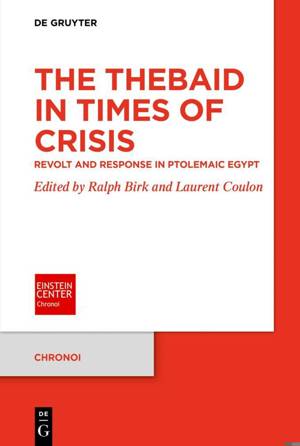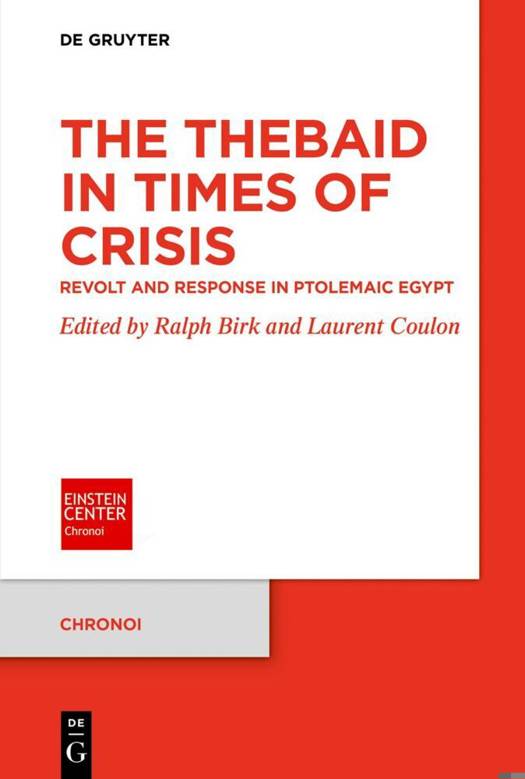
- Retrait gratuit dans votre magasin Club
- 7.000.000 titres dans notre catalogue
- Payer en toute sécurité
- Toujours un magasin près de chez vous
- Retrait gratuit dans votre magasin Club
- 7.000.0000 titres dans notre catalogue
- Payer en toute sécurité
- Toujours un magasin près de chez vous
The Thebaid in Times of Crisis
Revolt and Response in Ptolemaic Egypt
Description
This collective volume explores societal crises in Hellenistic Egypt, focussing regionally on the Thebaid, from small-scale insurgencies to full-fledged secession. As a result of an international conference held at the Freie Universität Berlin (May 2-4, 2019), the presented case studies ask how actors - and modern scholars - of Ptolemaic Egypt shape and frame times of crisis and what traces remain thereof in the record.
As decisive moments in time, crises reveal fundamental features of societies and structure the flow of events into historically meaningful, yet potentially teleological, trajectories. In Ptolemaic historiography, from Polybius till today, the Great Theban Revolt (206-186 BCE) served as such a turning point, demarcating rise and decline. By confronting the historiographic record with independent - and yet partially unexploited - sources, such as temple epigraphy, Demotic (literary) texts, archaeological, numismatic and private documentation, the reunited studies aim at diversifying the perspectives on and in societal conflicts in Ptolemaic Egypt, in order to gain a fuller and more nuanced picture of how various actors, kings, queens, officials, and priests coped with times of crisis.
Spécifications
Parties prenantes
- Editeur:
Contenu
- Nombre de pages :
- 380
- Langue:
- Anglais
- Collection :
- Tome:
- n° 13
Caractéristiques
- EAN:
- 9783111607849
- Date de parution :
- 27-01-25
- Format:
- Livre broché
- Format numérique:
- Trade paperback (VS)
- Dimensions :
- 156 mm x 234 mm
- Poids :
- 535 g

Les avis
Nous publions uniquement les avis qui respectent les conditions requises. Consultez nos conditions pour les avis.





